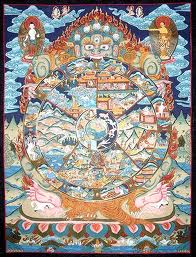
(Read Part 4 of the series.)
Plotinus and Neo-Platonism
During the second century AD, Plotinus attempted to revise Plato’s concepts relating to the nature of reality in order to incorporate the objections that Aristotle had raised. Most people lived at a level below that at which the intellect was able to comprehend the ‘Forms’ that Plato had spoken of, the eternal and unchanging basis for the worldly approximations of concepts such as beauty, justice and so on. The highest of the Forms was the ‘Good’. From it, the entire universe emanated, becoming increasingly less ‘good’ as it spread outwards but nevertheless still being ‘one thing’. The origin, God if you like, first becomes mind (intellect) and then soul. All things, including ourselves, are souls. The purpose of man was to return to the original state by examining the world and following the good back to its source. It was concepts such as this that greatly influenced Christianity, though the philosophers themselves rejected it because of such notions as salvation through grace. The ideas also had a resurgence during the Renaissance, when the writings of Plotinus were translated into Latin. Continue reading

